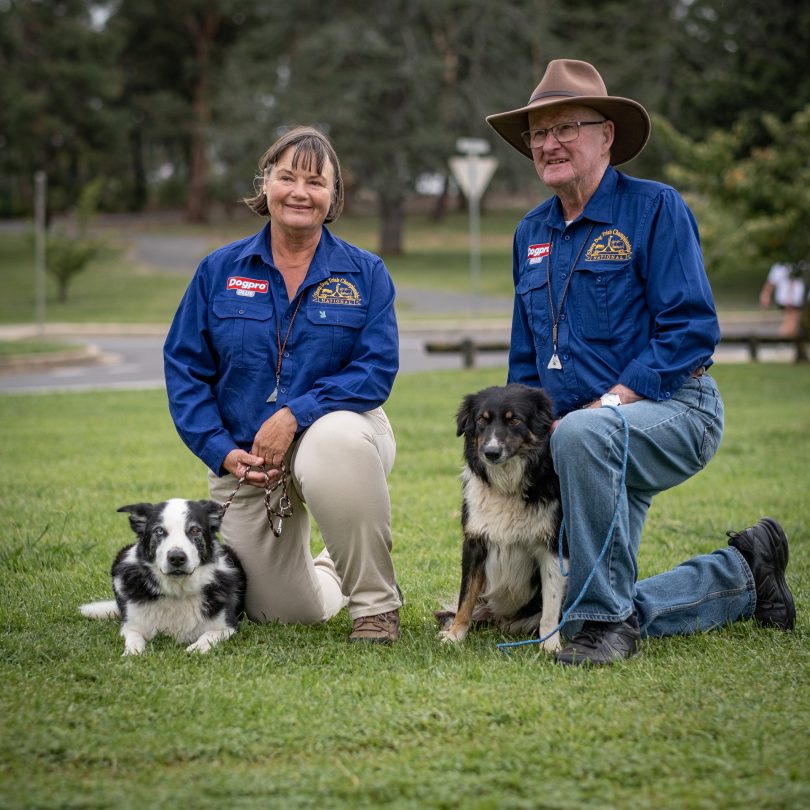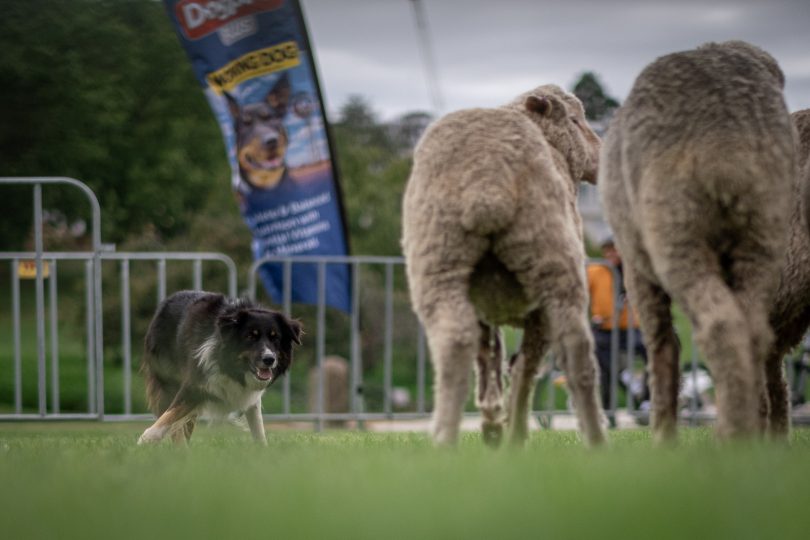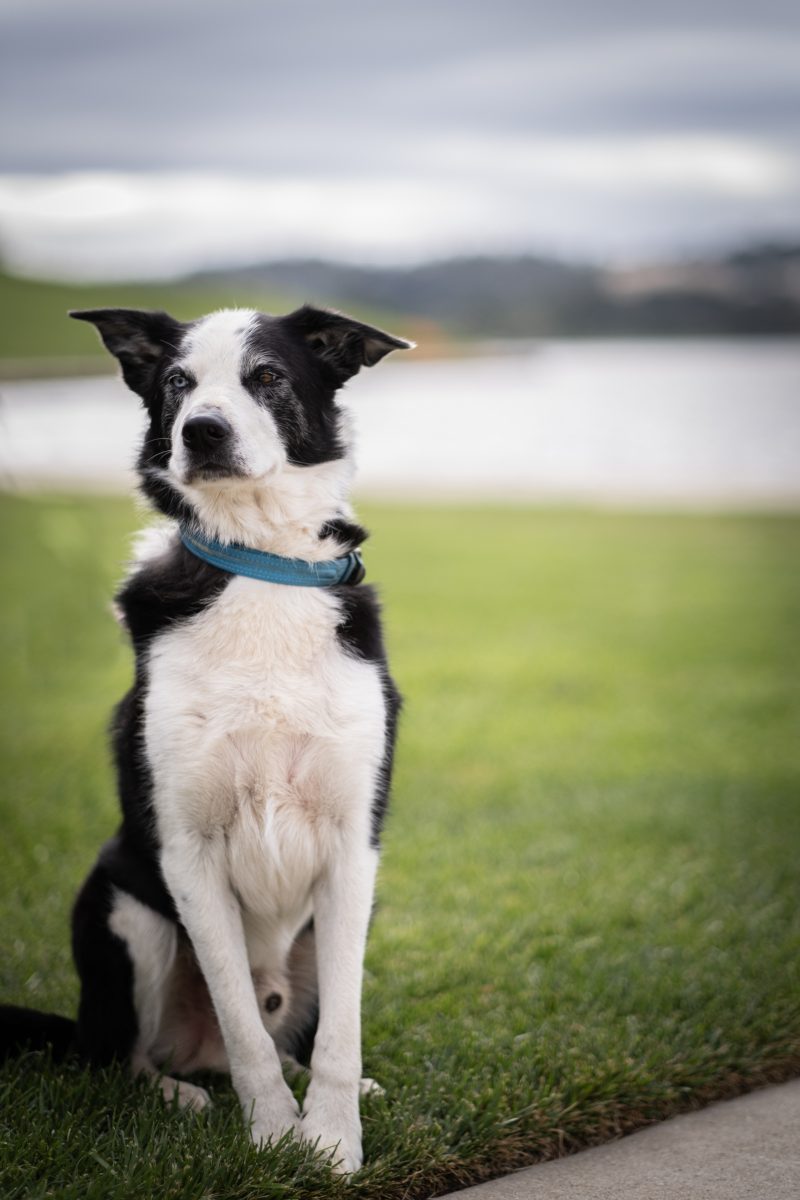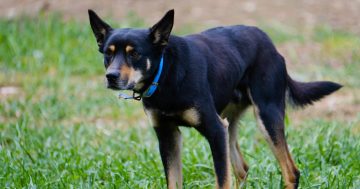
National Sheep Dog Trial Championships president Sarah Sydrych and 82-year-old eminent trialist Charlie Cover. Photo: Supplied.
Cricket may have Don Bradman and tennis may have Roger Federer, but the National Sheep Dog Trial Championships at Hall, near Canberra, have 82-year-old eminent trialist Charlie Cover.
Every day he works his seven border collies on a mob of 25 sheep at home – a 12-acre block just outside of Yass.
“I have a saying that I own 12 acres, 12 sheep and 12 dogs,” jokes Charlie.
This bloke from the bush spent all of his early years around working dogs in shearing sheds as a wool classer by trade.
Now, training and trialling dogs at competitions across the country is Charlie’s passion, and he’s got several awards to prove it.
“It was hard to get to any trials last year because of COVID-19, but I probably attend eight to 10 each year and travel as far as five hours away,” he says.
“The only interest I’ve got in dogs at this stage is the competitive side. The small amount of work that’s necessary on this small block is absolutely nothing, but I make work for the dogs nearly every day as part of their training.
“I’ve won the novice final, which is for dogs that haven’t won a trial previously, and made it into the open final, which is the last six dogs at the nationals.”
The National Sheep Dog Trial Championships are among Australia’s oldest and will celebrate 78 years this month.

Dogs and their trainers have 15 minutes to move the sheep through a series of obstacles in competition. Photo: Supplied.
Held at Hall Showground from 9-14 March, 2021, around 300 dogs and their trainers will compete to move three sheep through a set of obstacles towards an enclosed pen at the finish in 15 minutes.
Each competitor starts with a perfect score of 100 but loses points each time the sheep stray too far from the path, refuse obstacles or fail to be penned in time.
“People say there’s a lot of luck involved, but I think it comes down to the hard yards you put in at home,” says Charlie.
“Every competitor has three fresh sheep – sheep that haven’t worked before in this trial – and there’s a relationship that forms between the dog and sheep in the first few minutes.
“If the sheep are terrified of the dog, then you’re in big trouble, but if you can convince the sheep there isn’t a big danger by ordering the dog to do a few tasks, you have a good chance of scoring.”
A dog may be man’s best friend, but it’s also a farmer’s best employee and can save thousands of dollars in wages – an estimated $44,000 during a dog’s career.

Sarah’s dog, Jack, will be put through his paces at the National Sheep Dog Championships in Hall from 9-14 March. Photo: Supplied.
Australia has around 100,000 livestock herding dogs, which is about as many dogs as there are people employed in Canberra’s workforce.
Not only does the National Sheep Dog Trial Championships highlight the enduring link between the bush capital and rural Australia, but it also showcases the important role played by the nation’s working dogs.
National Sheep Dog Trial Championships president Sarah Sydrych discovered Charlie – who was the president at the time – and the trials when she got her first pup.
“We needed a dog to work the Dorpers [breed of sheep] on our ‘Tinderry’ property,” she says. “Someone gave me a puppy and I had to learn how to train it. That’s where Charlie came in.”
Sarah is a novice trialist and enjoys competing as a way of keeping on top of training.
“I’m still a beginner and getting a bit better, but it’s such a long journey and the more you learn, the more you realise how much you just don’t know,” she says.
Charlie says it all comes down to the relationship the trainer has with their dog, and he encourages training to begin from the day a pup is weaned.
“It’s got to be friendly, but on the other hand, you must be the boss and just like humans, there are some good bosses and bad bosses,” he says.
“You’ve got to have respect and, in return, you’ve got to respect the animal. You just can’t order it about – it’s not a slave, it’s a partnership.”
The National Sheep Dog Trial Championships is the competition every dog trainer wants to win, and Sarah says the entries just keep growing.
“Last year, there was a new committee and now we’re gaining momentum to become the major trial,” she says. “We had 45 competitors last year and there are 65 this year.”
The competition went ahead just before the COVID-19 lockdown in 2020 and luckily it doesn’t look like the pandemic will affect this year’s championships, either.
“We’re restricted to 2000 spectators per day, but I’m not worried we’ll exceed that,” says Sarah.
Click here to purchase tickets online (adults, $7.50; children, free).









